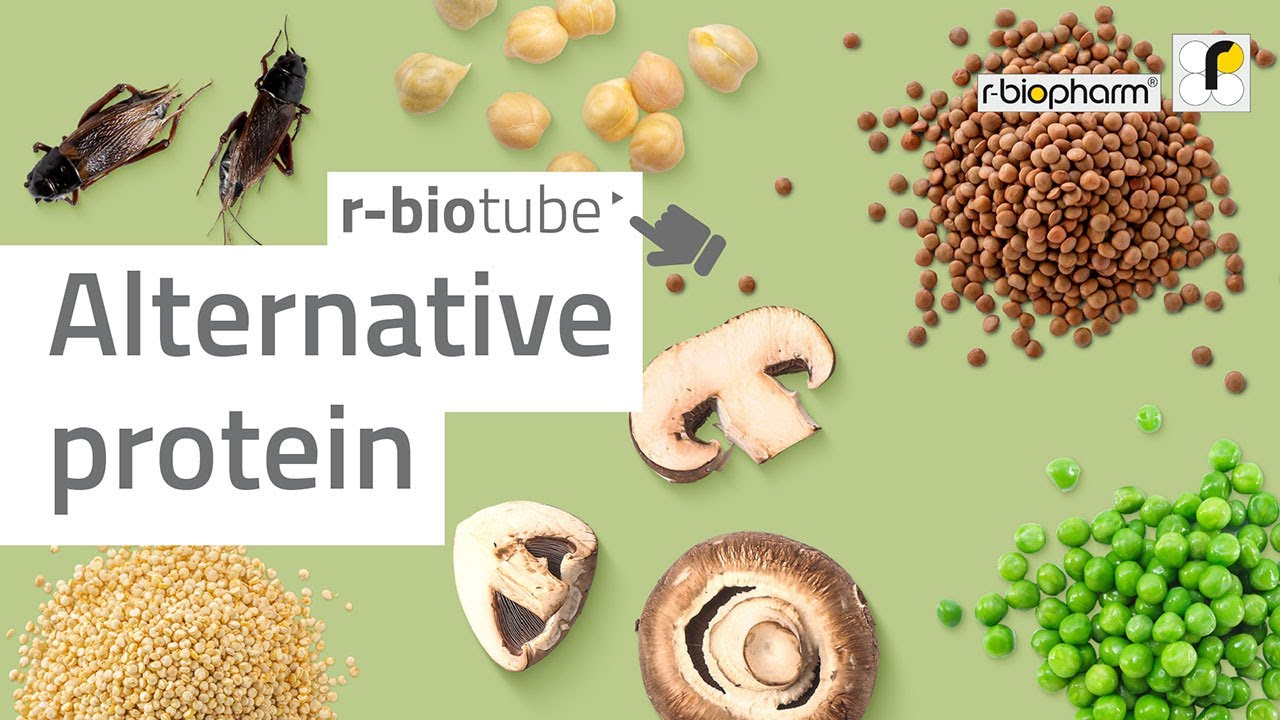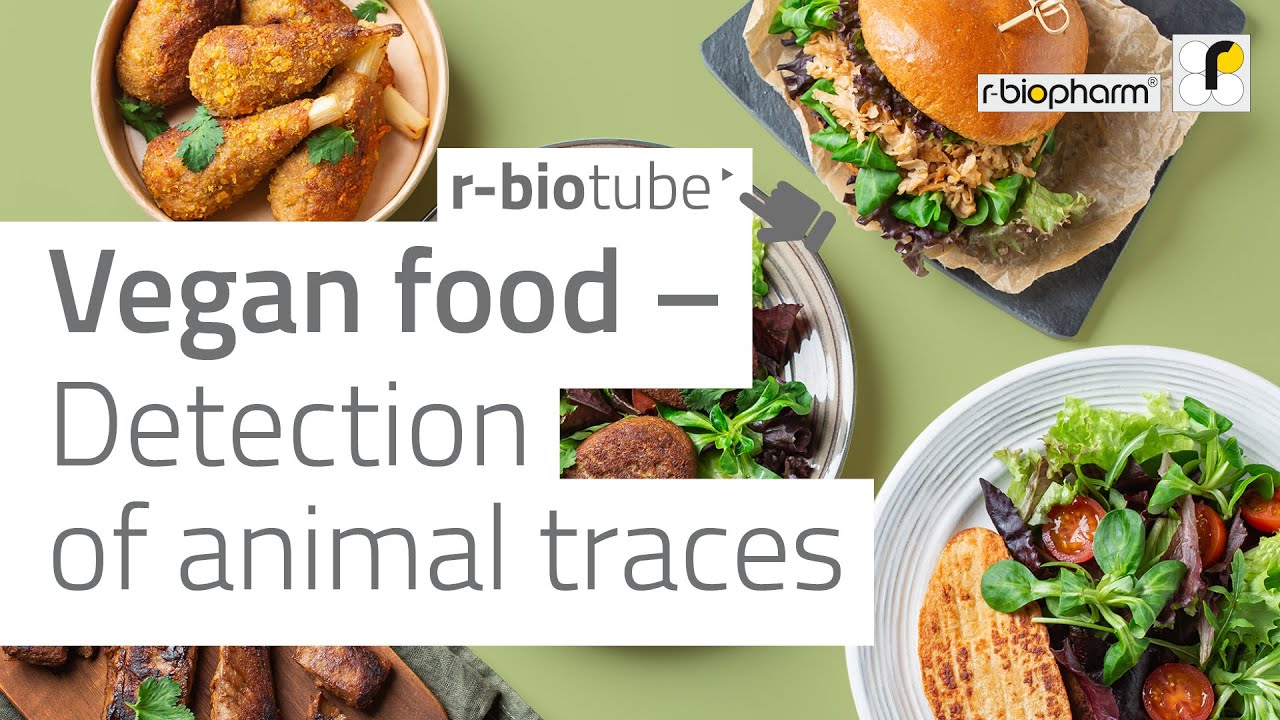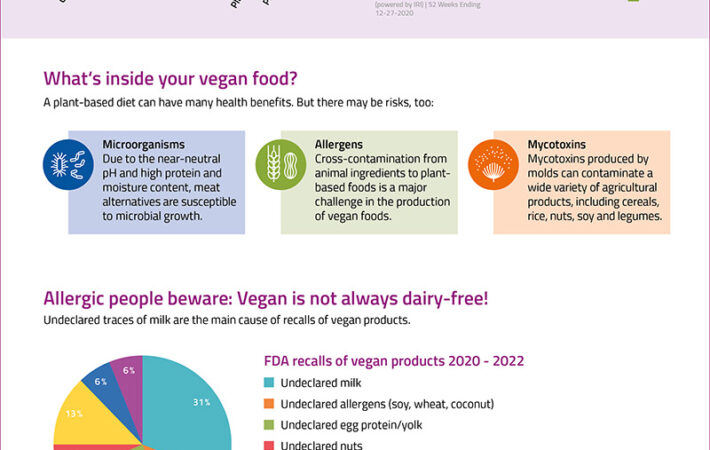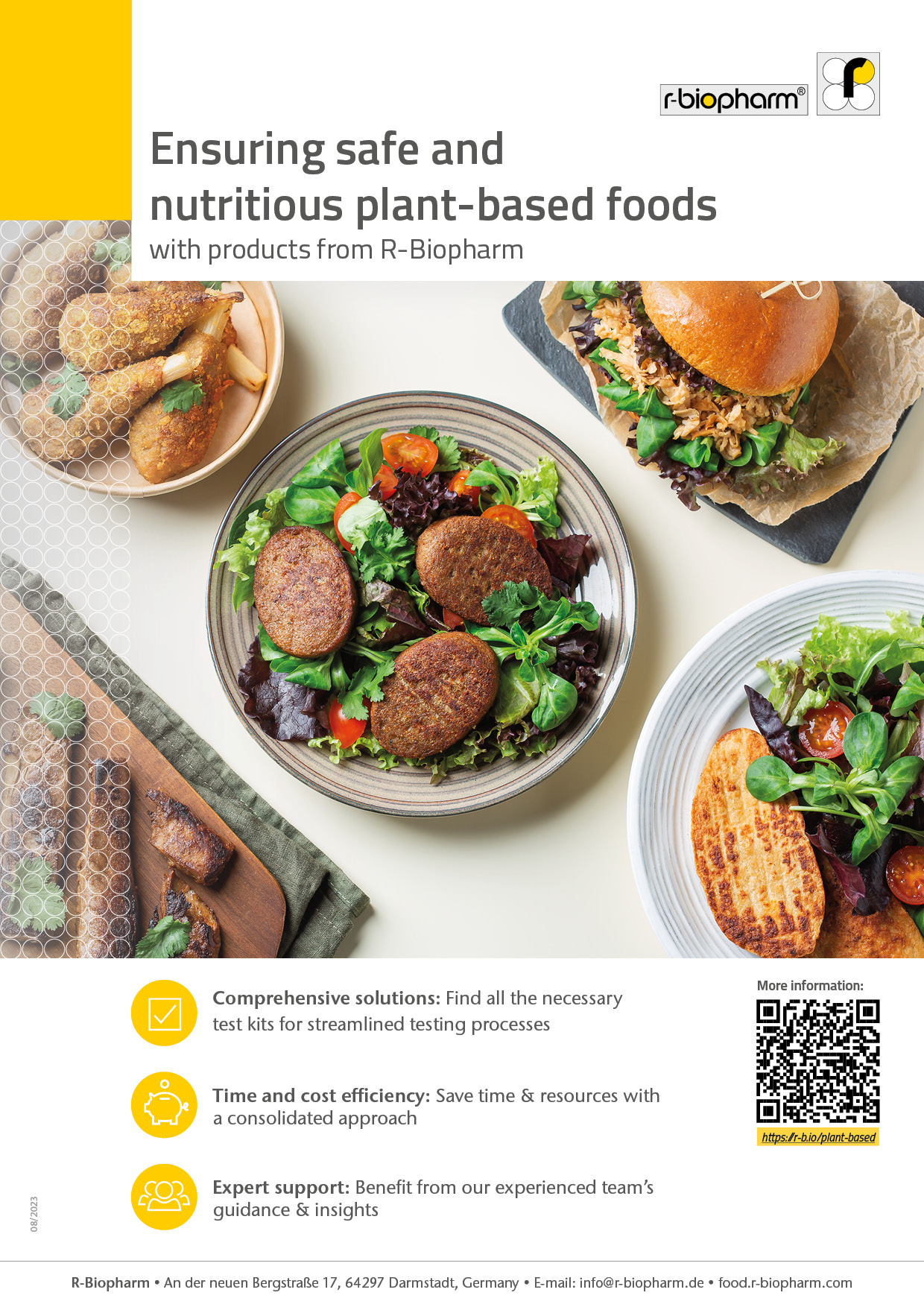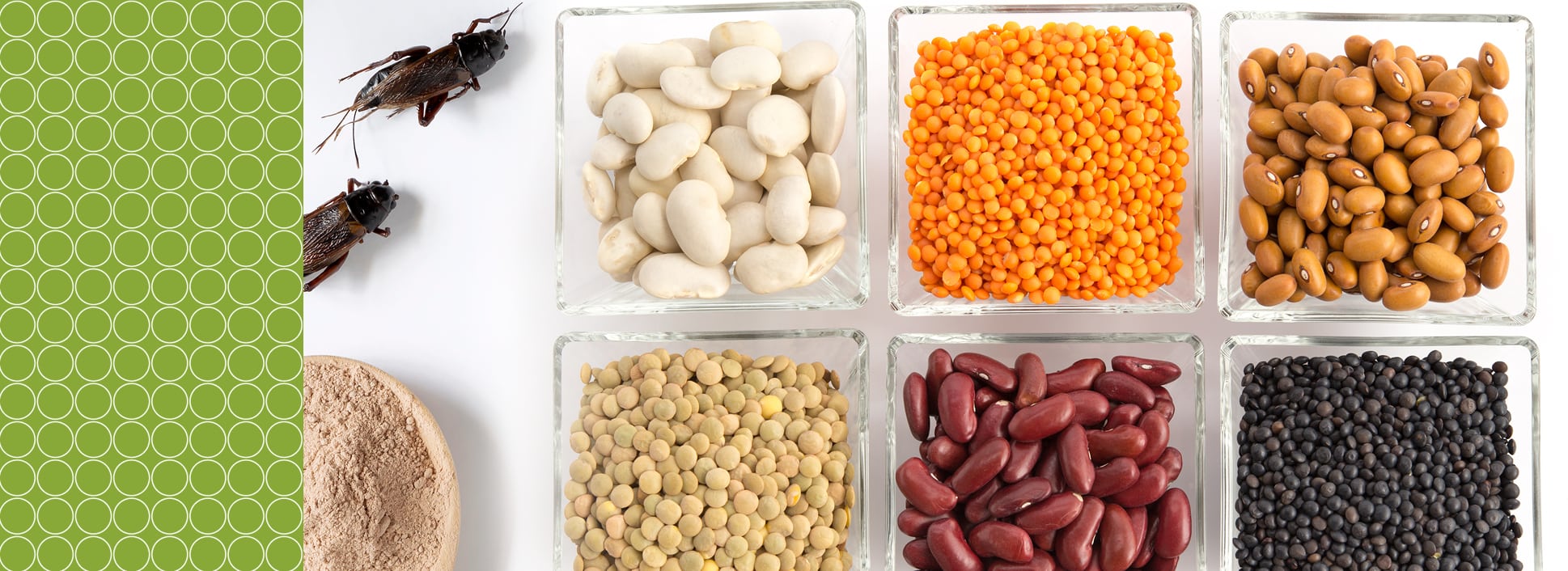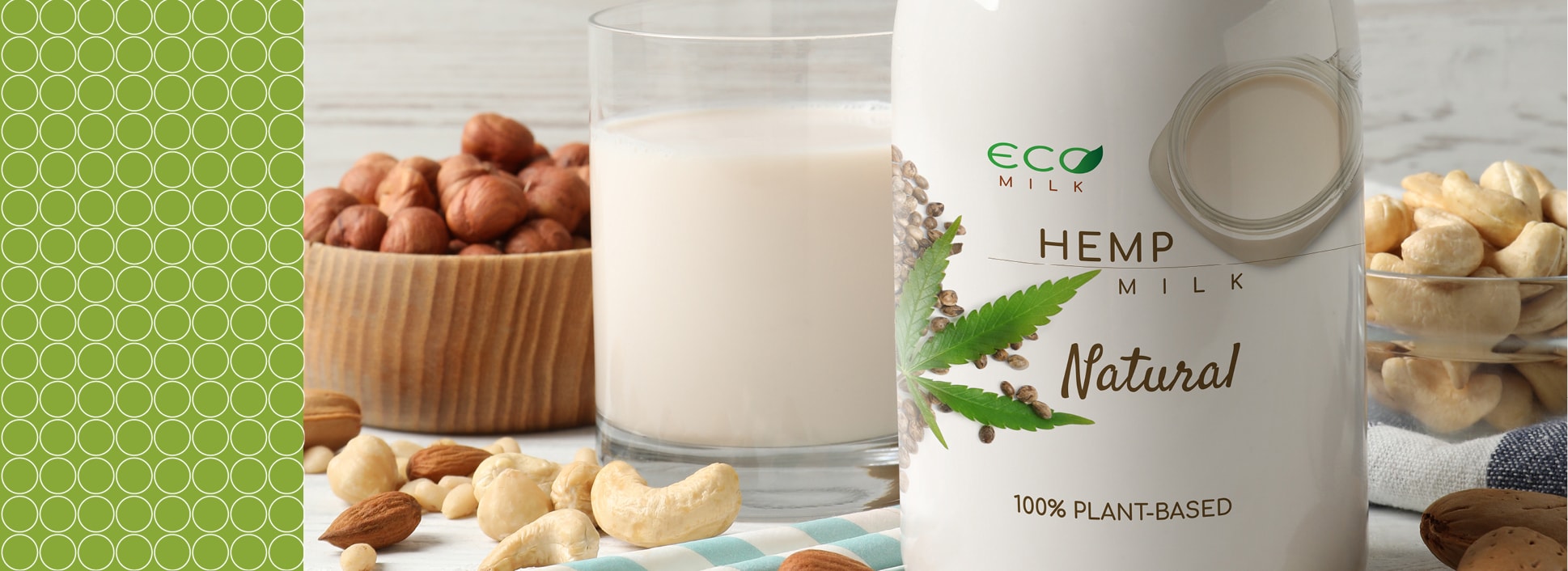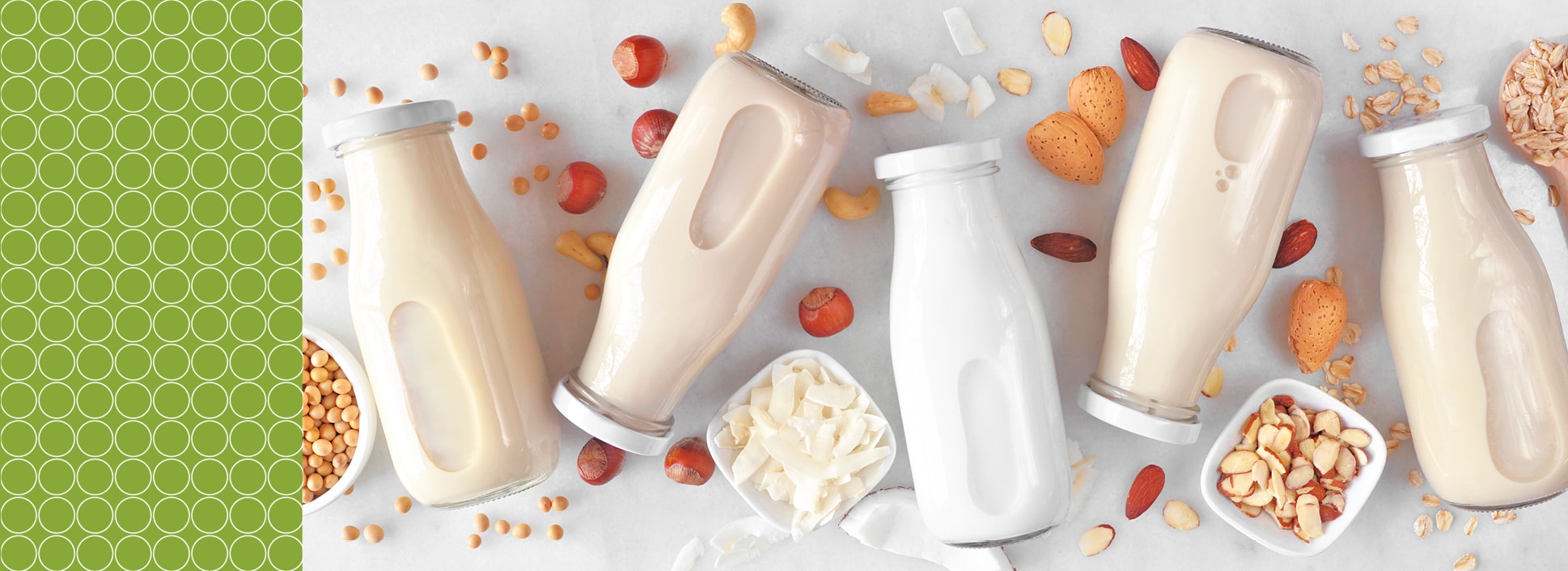
Plant-based food: ensuring quality & safety
Discover the science behind your favorite plant-based foods
- Home
- /
- Plant-Based Food Analysis
Welcome to the world of plant-based foods!
Plant-based food consists mostly or entirely of ingredients derived from plants. This includes grains, legumes, nuts, and seeds. Plant-based diets have gained popularity in recent years due to their environmental sustainability. Additionally, plant-based diets can reduce greenhouse gas emissions and land use compared to animal-based diets. Many people choose plant-based food to follow a plant-based diet for ethical reasons as well, as it avoids the use of animal products. There are many plant-based foods available, ranging from burgers, chicken nuggets and sausages to several milk alternatives based on almond, oat or soy.
The science behind quality assurance
As popularity of plant-based foods increases, questions arise about the safety and nutritional risks. The key to delivering safe and high-quality plant-based foods lies in comprehensive food analysis. Testing and analyses include the detection of potential contaminants, allergens, and ensure the nutritional accuracy of these products.
Here are some essential analyses and tests performed:

Nuts, gluten and legumes such as soy or lupins are particularly common in vegan substitute products, but other allergens such as sesame, mustard or celery also occur. Many vegetarian and vegan substitute products are highly processed and often have very extensive ingredient lists. Ready-to-eat products, in particular, often contain multiple allergens that are subject to labeling.
Manufacturers must be aware that by adding a vegan ingredient, allergens may end up in the product, which must be labeled. Traces of the allergens may also be introduced into other products or product lines, when handling for example animal derived products such as milk and egg. Good allergen management is essential to prevent contamination and ensure safe food for all consumers. This includes careful production planning, thorough cleaning and regular analysis of raw materials and final products.
Possible products of interest:
SureFood® ALLERGEN 4plex Soya / Celery / Mustard + IAC, Art. No. S3401
RIDASCREEN® Egg, Art. No. R6411

Plant-based products such as plant-based meat substitutes, plant-based drinks or plant-based protein powders are often based on cereals, like wheat, maize, rice or pulses, such as pea protein or soy protein. Cereals are well known to be a t risk for mycotoxin contamination, like aflatoxin, ochratoxin, DON, and other trichothecenes. Less well-known is that peas or soy might be contaminated with ochratoxin or aflatoxin.
Although the individual ingredients or components may be well within regulatory limits, the total exposure to mycotoxins due to changes in the diet, such as introducing more plant-based foods, may be of concern.
Possible products of interest:

Analyzing vitamins to ensure accurate nutritional content claims. Plant-based products can be fortified with various nutrients during production to enhance their nutritional value and mimic the nutrient profiles of animal-derived products. Vitamins like Vitamin B12, Vitamin B6, Vitamin B2 (Riboflavin) are often added to plant-based products. Vitamin B12, in particular, is commonly fortified in plant-based foods as it is primarily found in animal-derived sources. It’s important to note that fortification practices vary depending on the product and regional regulations.
Possible products of interest:

Plant-based food alternatives often contain near-neutral pH and high protein and moisture content, making them susceptible to microbial growth and spoilage. Detecting food pathogens is therefore of great importance to ensure plant-based products are safe for consumption. Contamination may occur via contact with contaminated sources of animal manure, water, or other foods for example.
Possible product of interest:

Food products that advertise being vegan must be checked for this during or after production. Cross-contamination from animal ingredients to plant-based foods is one of the challenges, which have to be considered across the whole supply chain. This risk is particularly high at manufacturing facilities that handle animal-derived allergenic ingredients such as milk, gluten or eggs. The European V-label defines in its guidelines for unintentional traces of animal residues a limit of less than 0.1% (1 g/kg) of animal ingredients.
The SureFast® VEGAN kit can be used for the reliable detection of animal DNA traces in both raw and processed food samples. The kit provides a sensitivity down to 0.01% of animal DNA to support vegan label claims. The included positive control, which comprises 0.1% of bovine DNA, can be used as a reference to set the detection threshold.
Possible product of interest:

Food containing genetically modified organisms must be labeled in the EU. In addition, there are seals such as “V-Label”, “GMO-free” or “VLOG tested”, which have even stricter specifications and allow consumers even more transparency with regard to the origin and production of the food. To ensure the necessary transparency, i.a. the European Council Regulation (EC) (No. 834/2007) on organic production was implemented. This regulation regulates the use and labeling of genetically modified plants in food and feed (European labeling requirements 1829/2003 and 1830/2003).
Possible product of interest:
SureFood® GMO SCREEN 4plex, Art. No. S2126
Information material:
Alternative protein – vegeterian, vegan, flexitarian
Alternative proteins, like plant proteins, insects, are the major innovation driver in the food industry. Alternative proteins have many health or sustainability related advantages, but they may also contain hidden allergens or mycotoxins.
Vegan food – detection of animal traces
Plant-based foods must also meet strict quality and safety standards. Did you know that these products can also contain allergens or animal DNA? In this video, Ronald Niemeijer talks about V-Label criteria and explains when our SureFast® VEGAN real-time PCR kit (https://food.r-biopharm.com/products/surefast-vegan/) comes in handy.
More information on PCR in plant-based foods analysis https://food.r-biopharm.com/highlights/plant-based-food-analysis/
Empowering your plant-based journey
At R-Biopharm AG, we are dedicated to empowering the plant-based food industry with advanced and reliable food analysis solutions. Our test kits and expert teams are committed to ensuring the safety, quality, and compliance of your plant-based products. Partner with us to unlock the full potential of your plant-based journey!
Elevate your plant-based foods
Contact us today to discuss your plant-based food analysis needs and take your products to the next level of quality and safety.

